EXCLUSIVE Q&A: WPP Scangroup’s Wartime General, Miriam Kaggwa, on Her Game Plan to Return to Profitable Growth in a Fast and Furious Industry
Describing herself as a “wartime General”, Ugandan-born Kaggwa brings to the role a deep rooting in agency operations and finance having spent over two decades within global agency networks like McCann Worldgroup, IPG Mediabrands, and BCW (now Burson), something that has allowed her to notch up deep expertise in the advertising and communications business.
Kaggwa who joined WPP Scangroup as Group Chief Financial Officer in February 2023, was elevated to Chief Operating Officer in January 2025, and in July 2025 was handed the reins as Interim CEO—bringing continuity, clarity, and institutional memory to the helm. She worked closely with outgoing CEO Patricia Ithau. In many ways, she is not merely continuing the Group’s agenda, but this time must recalibrate it with a sharper execution focus and a renewed sense of urgency.
In this exclusive conversation with Muhereza Kyamutetera, Executive Editor of CEO East Africa Magazine, Kaggwa lays out her recovery plan, reflects on the shifting communications landscape, and explains why she believes WPP Scangroup remains firmly in the fight.
In her view, WPP Scangroup has been shaken but not stirred, and has a strong governance foundation that Patricia leaves behind—while leveraging the global WPP network’s breadth, tools, and top talent to get back on the path to profitable growth.
Miriam, there’s been considerable speculation lately—between leadership transitions, client movements, and the financial figures that have raised eyebrows. Of course, the loss of the Airtel Africa account by Ogilvy Africa, one of your lead agencies, was a major headline. Given your vantage point as both CFO and now the caretaker CEO and key leader in this transition, how would you assess the current state of the business? Where exactly does WPP-Scangroup stand today, both financially and operationally?
The fundamentals of the business remain the same, and I’ll tell you why I believe that. There is an integral place for an agency with a breadth and depth of expertise in its bench supported by a functioning operational structure. We’re one of the few agencies on the continent that offer integrated services. From PR to the creative agency to media buying, we’re still the biggest media buying entity in Kenya. So, the fundamentals are still solid. There’s still a significant amount of cash on the balance sheet, and we remain well positioned for multinationals. If you’re a multinational on the continent today—just like we did for Airtel, just like we’re doing for Coca-Cola—there are very few players with the scope and the balance sheet that we have to execute on those mandates.
So yes, the fundamentals remain the same. And we have the backing of WPP as our majority shareholder, who continues to be a strategic partner. Any client they win globally—say Unilever—they need to execute here on the continent, and with our geographical reach, we remain very well-positioned.
Now, we lost Airtel—and I don’t want to trivialize that— we fought very hard, and I was at the centre of that fight. We built a network of around 200 people across the continent to service them, and incorporated different technological tools and platforms. However, it is their prerogative to choose a different way of working. Was it an unfortunate loss? Yes, it was. Do I hope they’ll be back? Yes, I believe they’ll be back.
But clients come and go, and even though Airtel was one of our biggest clients, I don’t believe that loss defines us—not by any means. Our portfolio of clients consists of over 200 clients in varied sectors such as for-profits, not for profit organisations. Creativity across our business remains a key fulcrum of our work.
Have you had to do any restructuring internally—maybe reorganise teams, or, unfortunately, let some people go—as part of adjusting to the recent changes?
We’re proactively optimising our talent to match industry evolution. As new clients emerge, we’re strategically reassigning high-performing teams like our former Airtel unit – now driving exceptional work for Unilever. While restructuring remains an option, our priority is leveraging our deep expertise through redeployment. We’re actively aligning skills to growth areas, ensuring continuity while securing new partnerships. This dynamic market demands agility, and we’re positioning our strongest capabilities where they’ll deliver maximum impact for current and future clients.
Just to understand the structure a bit better, what countries fall under your coverage across the region? And are you able to give a rough sense of how the business is distributed percentage-wise across those markets?
WPP Scangroup covers Sub-Saharan Africa—we don’t cover South Africa, but we operate across the rest of the region. We have a physical presence in Kenya, Uganda, Tanzania, Zambia, and Ghana. We divested from Nigeria, but in the other markets, we represent clients through affiliate relationships. So between our physical offices and affiliates, our coverage spans 39 countries. As part of our strategic plan, we hope to broaden that to 54 countries.
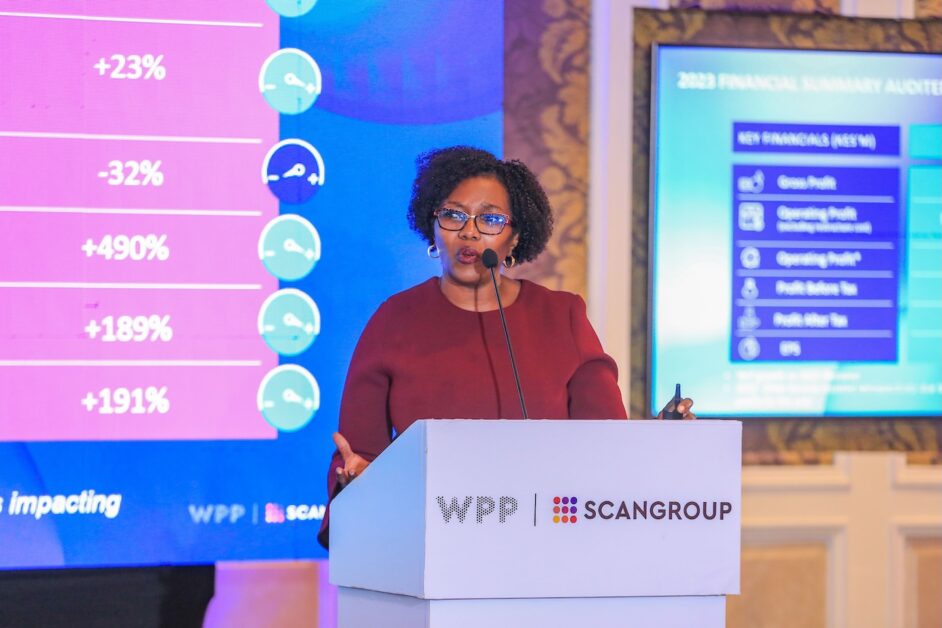
Currently, a large chunk of our business is in Kenya. The second biggest market is Ghana. Uganda is the third, and we’re working very hard to grow it. I don’t know if you’ve met our MD there, Tom Windows—he’s leading the charge. We’re doing work for clients like dfcu Bank and we’re also in the process of winning and expanding with AGRA. So there’s strong momentum in that market.
I imagine in the weeks leading up to the leadership transition, you must have been given some sort of brief. So what are you focused on over the next three to six months? What are your immediate priorities to ensure you pick up where things left off and hit the ground running?
The strategic plan does not change. I didn’t need to get a brief because I’ve been part and parcel of it—Patricia and I have been joined at the hip, and I’ve also been going to the board. The strategic plan we laid out remains the same: profitable growth, our people, sustainability, and data and AI. That’s still our focus over the next three to five years.
In the coming months, if you ask me what we’re going to be focused on—it’s client retention and growth. So, the number one goal is to retain and hold—and deliver seamlessly—for our existing clients.
And of course, our people. Many businesses sell products, but for us, people are our key asset. So we’re being very intentional about putting our arms around our good people.
So if you ask me about my top priorities over the next six months, it’s talent and client retention.
Speaking more broadly across the industry and looking across Sub-Saharan Africa and the continent in general, what are some of the key trends you’re seeing, both the good and the challenging?
In terms of trends, many clients are moving toward the digital space. When I came back to the continent three years ago, most of the budgets were still heavily weighted toward traditional media—mass media. That still matters, and it continues to be important. But what we’re seeing now, especially with the larger clients, is a significant shift in budgets toward digital.
Two or three years ago, about 70–75% of the budgets were going to traditional media—radio, print, out-of-home. Today, we’re starting to see that shift—around 40% or more is now going to digital. So, while traditional media remains relevant, the move toward digital is very clear.
The other trend I’m seeing is the low barrier to entry into the industry. You have smaller shops entering the space, and many agencies are now competing on price. What differentiates us at WPP Scangroup is that we compete on value. We can’t—and won’t—compete with a shop of four people meeting in Java House to push out a campaign. So we focus on value-adds, on higher-barrier differentiators that we can deliver by virtue of being part of WPP.
We have access to WPP Open, and that’s a big part of what we’re leaning into—adding value. Of course, we do both—we balance. We have internal workflows and portfolios that allow us to serve mid-sized clients with conservative budgets, but we also serve large clients where we can build deeper, more integrated solutions. For example, I don’t know if you’re familiar with the digital studio we’ve built for EABL—or even what we had built for Airtel—but we’re now doing that for Safaricom too. Those are the higher-end, higher-margin projects we’re offering to our clients.
For midsized clients, we still have workflows that don’t require a high-touch approach. But across the industry, it’s clear—it’s becoming increasingly price-driven because of the low entry barriers. That’s why we’re focused on standing out through differentiated value.
Another trend is around people. In East Africa, the talent pool is relatively small, and most of the market is recycling the same people. The competition for talent is very high—that’s another big shift I’m seeing across the continent.
This is something I’ve been asking other agency leaders as well—and given your experience in the industry, I’d love your take. With all the price competition going on, and in light of shifting industry trends, do you find that clients are appreciating more the value agencies bring to the table? Are they willing to allocate more resources accordingly, or are most still focused on negotiating discounts and squeezing more for less?
It depends on the client. The smaller clients tend to be more price-sensitive, and we’re more requests to do more for less. Budgets are getting smaller and smaller.
However, when it comes to the bigger clients—and I don’t want to use the wrong words, but let’s say the more sophisticated clients—they are willing to pay for value. So, as an agency, you must be able to cater to both ends of the spectrum.
Sometimes we go into a pitch and we know we’re competing purely on price because the client is very cost-conscious. In many of those pitches, especially with midsized clients, we’re being asked to give 25% discounts year over year—for the same work or even more work—despite inflation.
So, you need to be flexible as an agency. If you can’t cater to both value-based and price-sensitive clients, you won’t survive.
There’s been a lot of conversation around Gen Zs—they seem to be a completely different group of people to manage. I’ve heard a mix of views from different leaders: some say they’re refreshing and bringing a whole new way of doing things, while others say they’re a bit chaotic. Given that the communications and agency world employs a lot of young people, what’s been your experience working with Gen Z talent across the board?
They’re one of the most talented groups of people. What drives them is very different from what used to drive us, so it’s imperative for every manager to figure out how to get the best out of Gen Zs.
Sometimes we receive briefs, and I don’t even understand the language—it’s all slang—but that’s exactly what the client wants. So, you can’t do away with Gen Z. They’re creative. They’re not inhibited by the things that used to limit us. They have a lot of talent.
As an organization, we’re constantly trying to figure out: how do you get the best out of people who don’t necessarily want to wake up at six or seven, but when they do show up, they give you their best? People who are driven by social impact and what they believe in—they won’t just do things because they’ve been told to. So, how do you tap into that? How do you get the most out of people who don’t care whether they’ll have a job tomorrow, but while they’re here, they give you their absolute best?
You need to keep the culture flexible enough so it doesn’t feel like a cookie-cutter. If you get that right, you’ll get the most out of them. It’s a very, very interesting and talented generation. They’re not bound by the norms we grew up with—like staying at a job for years just for a pension. Every organisation needs to figure them out and not try to bottle them in.
If you look at the creatives we have in the office today, you might think, “In my days, I would have been fired for coming to the office like that!” But they’re brilliant. And they’re the next generation. Across the African continent, I believe about 95% is Gen Z. If I’m an agency or a client trying to sell, that’s my biggest audience. They’re the ones who will have the buying power tomorrow.
If you were to address a masterclass of clients—particularly CEOs, CFOs, and CMOs—what would you say to them about the communications industry today? What trends should they be aware of? Where is the real value that agencies bring? And most importantly, where should they be putting their money over the next two to three years?
That’s a great question—and actually, it came up recently in a conversation with one of our biggest media partners, Royal Media Services (RMS). I was asking them: why are some clients now going direct? Because we’re definitely seeing that trend—marketers bypassing agencies and going straight to media partners.
But I truly believe there’s still a very strong and critical role for agencies. Here’s how I think about it: have you ever been to a doctor who’s so good, they tell you what’s wrong with you before you even know it yourself? That’s what a great agency should be. That’s the kind of value we bring.
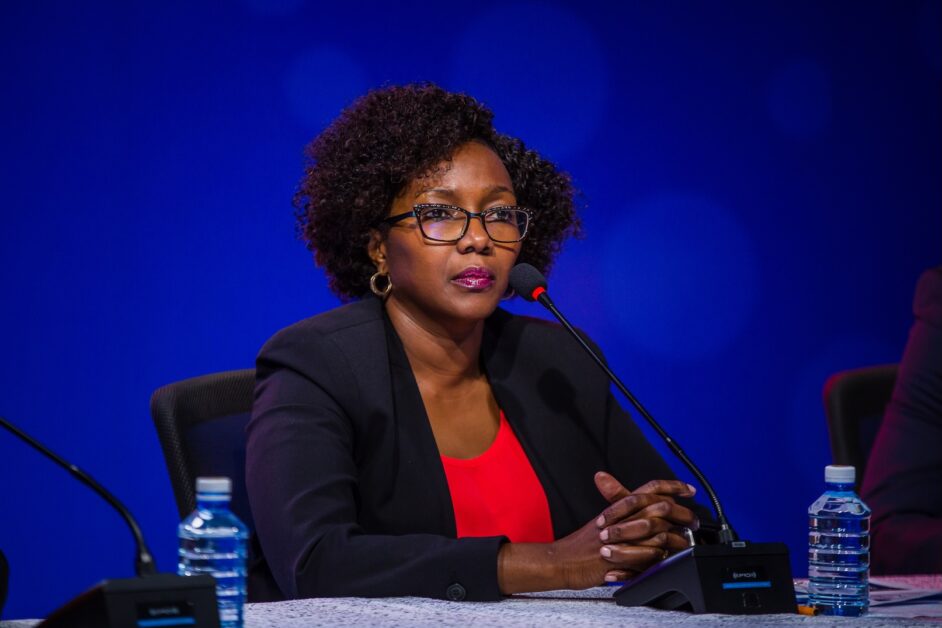
Gone are the days when agencies could survive just being order takers—you get a brief, run a campaign, execute, and that’s it. Anyone can do that now, including internal teams. Where we’re seeing real impact is with clients who come to the table and say, “Look, I’m facing pressure here, here, and here—how do we solve it?” That’s where the agency’s expertise truly shines.
So what I’d say to clients—especially CEOs, CFOs, CMOs—is this: if you engage your agency as an extension of your team, not just as an external vendor, you’ll unlock tremendous value. We see the whole market. By virtue of our size and reach, we work across different agencies and clients, so we see the trends, patterns, the shifts. We also have access to the depth of tools that come from WPP globally.
When you work with an agency like ours—not just to execute briefs, but to brainstorm, to co-create, to think through solutions—you’ll experience the true value. But if you treat your agency as just an executor—”do this, push that”—you miss out on the strategic partnership. The real value is in co-strategising and having us be that expert partner—like your doctor—who can tell you what you don’t even know yet.
You mentioned that one of your key priorities over the next three to six months is wrapping your arms around your key people—and I imagine WPP is doing the same across the group. But with that comes some hard conversations too. If we were a fly on the wall listening in as you speak to your CEOs, what’s the rallying call you’re giving them right now? Because let’s face it—when a big client walks away, it leaves a real hole. I know agencies, especially in Uganda, that almost didn’t survive losing a major client. Some actually folded. One agency I know only stayed afloat because they owned their building. So, what are you telling your leadership teams to help the business bounce back?
Well, the beauty about WPP is—we’re not in that stage. We’re not facing extinction. We’re big but agile and we have the backing and support of WPP. But what I’m telling every CEO is this: it’s a call for urgency. Truly.
And I frame it this way—there are peacetime leaders, and there are wartime leaders. I happen to be a wartime leader. I’ve been through this before. Back in 2004, when I was at McCann, we lost GM—a $1.3 billion account. That was a defining moment. It was clear we had no room for error. We had to fight for every client.
And that’s exactly the mindset I’m calling for now: seamless execution. At our recent Town Hall, I told the team—this is the time where hunger and flawless delivery matter more than ever. The competition is hungry. The smaller agencies? They’re hungrier than ever. So we must rise with urgency and precision—not out of fear, but with resolve.
We’re not fighting for survival, but we are fighting to show more value. That’s the difference. It’s a call for urgency. A call for seamless execution. A call for passion—because passion is where smaller agencies often win. And most importantly, it’s a call to absolutely retain all our key people. That was the message I gave to our CEOs the other day.
And finally, do you have a message for your stakeholders, especially those who haven’t yet had a chance to hear from you since you stepped into the driver’s seat?
Patricia, no doubt, played a very important role. If you look at where she took the company from, to where she left it—it’s night and day. The governance, the institutionalisation of the agency, the culture—she did a lot on all of those fronts. And I’m now building on the strong foundations she laid.
Yes, we’ve lost some clients—but my job is to build on that momentum and reinforce the fundamentals. Governance, culture, and above all, people—Patricia was a people-first leader, and I truly believe that spirit still lives within our agency.
But now, the focus is on growth. Profitable growth. That’s going to be key for all of us—for our shareholders, our employees, and the communities we operate in. The next six months and beyond will be about re-engineering ourselves to grow.
I’m no stranger to this industry. I joined it back in 2004, at McCann in New York. I’ve seen the good, the bad, and the ugly. Patricia leaves the company in the hands of someone who’s very seasoned. I’ve spent my entire career in agency life, across different continents, and I believe WPP Scangroup is in very, very good hands.
We also have Vikas Mehta, the Regional CEO of Ogilvy Africa, who’s a solid agency person. The company is in good hands. Management may change, but I believe every company must be bigger than any one of us—and the beauty now is, we are institutionalized.
I don’t see any gap in how we’re going to serve our clients. Vikas, Patricia, and I have all stood before clients—we are not strangers to them. So now, the baton has been handed over, and we’re going to do what needs to be done—for all our stakeholders.
I’m very confident that better days are ahead.
Share this content:
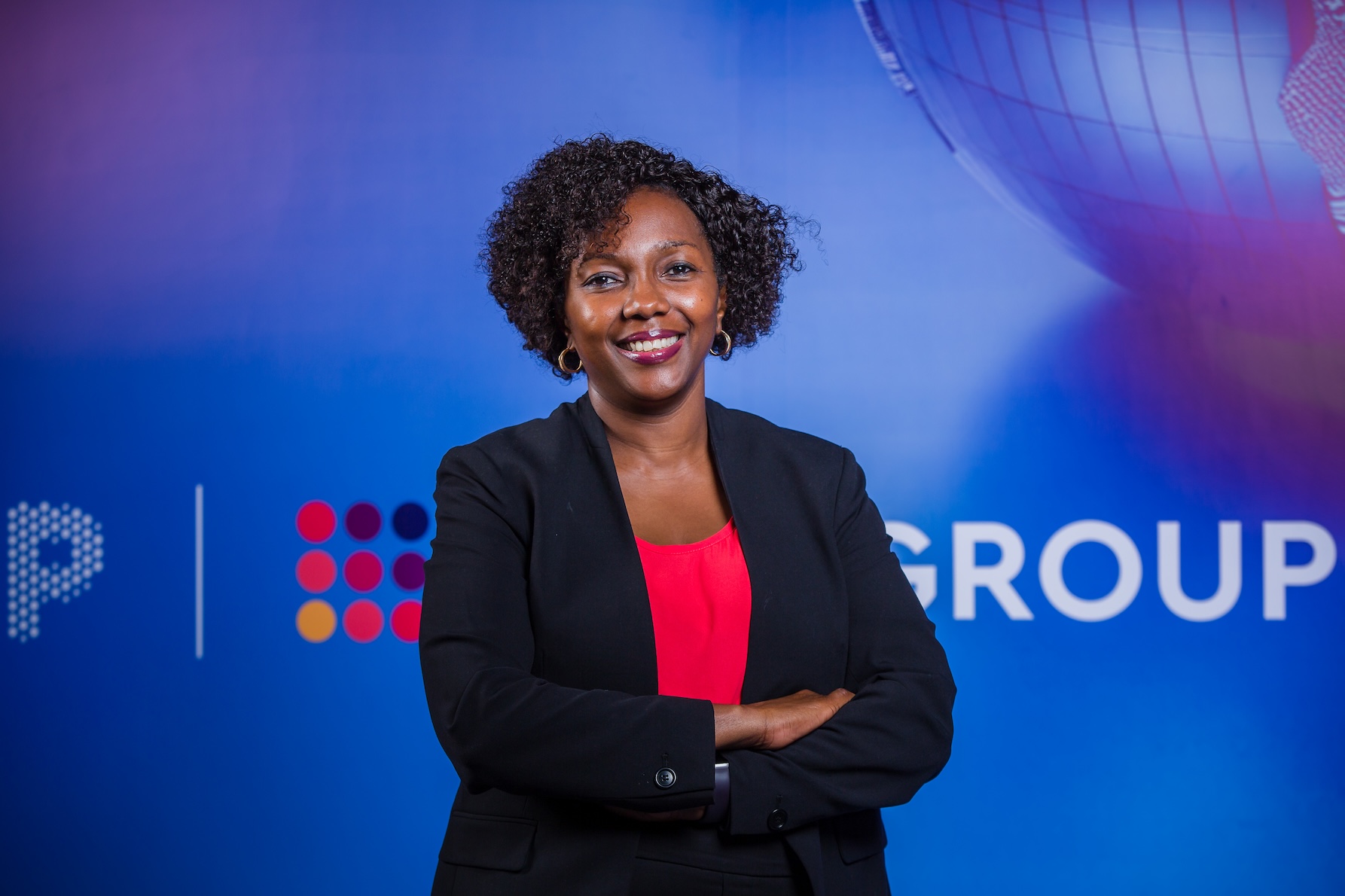
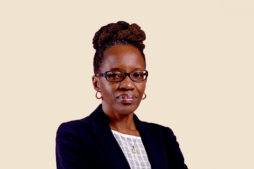 Josephine Olok: Building Uganda’s Tech Future with Purpose, Passion, and People
Josephine Olok: Building Uganda’s Tech Future with Purpose, Passion, and People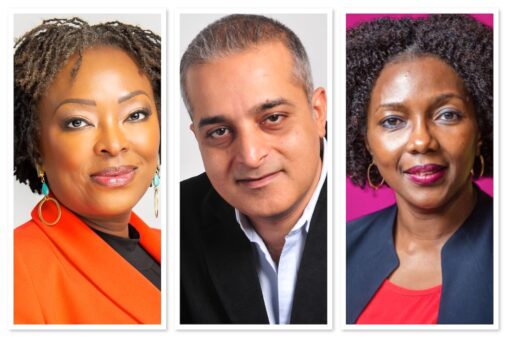
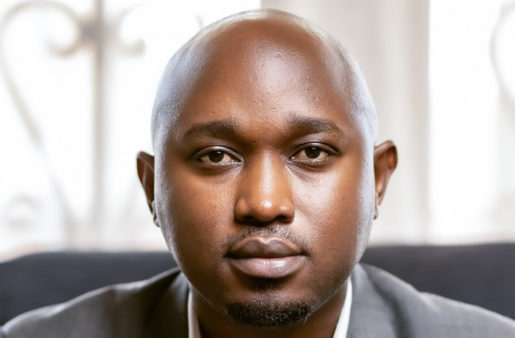
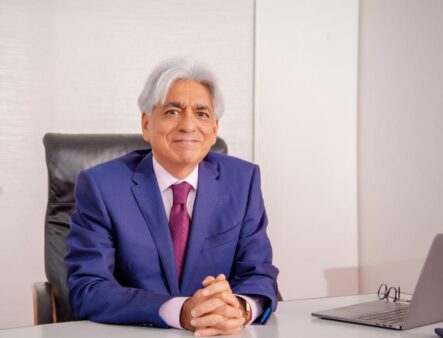




Post Comment